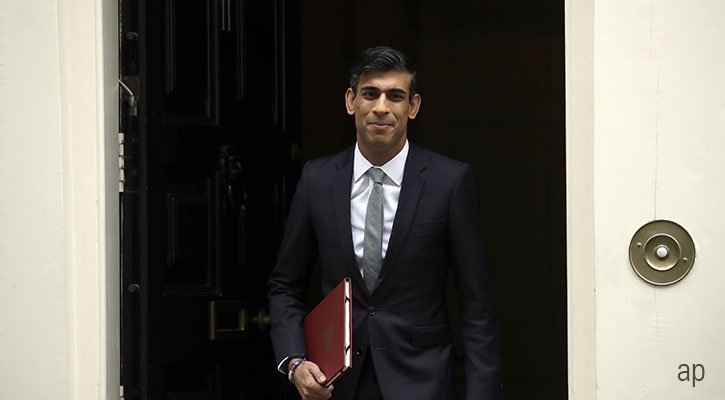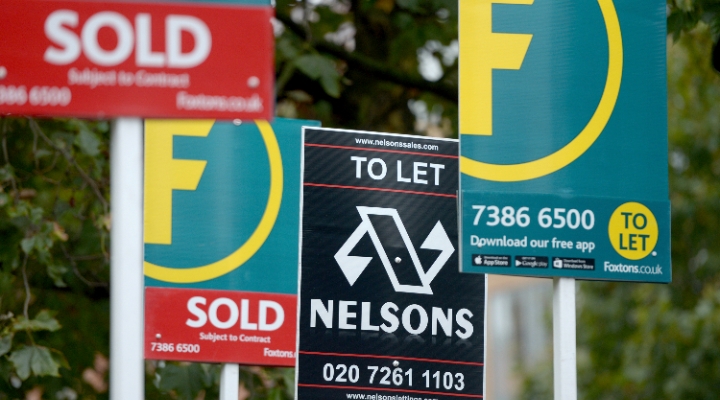
Chancellor Rishi Sunak has announced a raft of measures to help proper up the battered UK economy as it recovers from the Covid-19 crisis.
In a Summer Budget, Sunak announced a jobs scheme for younger people, a stamp duty cut to jump start the housing market, a targeted VAT cut, and measures for improving energy efficiency in homes.
The Chancellor described his £30 billion of spending as the second phase of the economic response to the coronavirus crisis. It comes just month after his March Budget, which unveiled billions of pounds in stimulus, including the Coronavirus Job Retention Scheme.
Effective immediately, the threshold at which people pay no tax on property purchases will be lifted from £125,000 to £500,000. According to the Chancellor, this move will save £4,000 on the average house sale, and means nine out of 10 people will not pay stamp duty.
This is designed to be a temporary measure that lasts until March 31, 2020. Before the announcement, the stamp duty on a £500,000 home would have been £15,000.
Homeowners will also be offered £5,000 vouchers to improve the energy efficiency of their homes, rising to £10,000 for people on low incomes. Shares in some listed housebuilders spiked on the announcement, with Persimmon (PSN) – which largely sells homes which fall below the new threshold – climbing nearly 3% to £24.81.
VAT and Vouchers
With pubs, restaurants and cafes now open, the Government is also looking to assist a sector that has been hit hard by lockdown with a targeted cut to VAT from 20% to 5%. This kicks in on July 15 and will cover meals out at restaurants, hotel stays and trips to cinemas, theme parks and zoos. It's the first VAT change since then-Chancellor George Osborne put up rates from 17.5% to 20% in January 2011 after the financial crisis.
To encourage more people to go back to restaurants, an “eat out to help out” scheme has also been launched, where diners can get up to 50% off on meals through August.
Neil Birrell, chief investment officer, Premier Miton Investors, says the measures to help this sector are positive “but do not go very far in the face of the economic situation we are in”.
Tom Stevenson, investment director of personal investing at Fidelity International says: “Despite these fresh incentives, consumers should err on the side of caution and resist any urges to blow their budgets. The prospect of tax increases is very much on the table for later in the year, coming hand in hand with lower public spending.”
Furlough Scheme to End
Sunak has been under pressure to extend the £160 billion furlough scheme, which has propped up the UK economy since lockdown was announced in March, paying the wages of up to 10 million workers. “Furlough cannot and should not go on forever,” Sunak said, announcing, instead, a £1,000 bonus for each employee retained by a company. He also announced a £2 billion scheme to subsidise work placements for people aged 16 to 24 on Universal Credit.
Robert Alster, head of investment services at Close Brothers Asset Management, believes the job measures may be flawed: “At first glance, the job retention bonus looks attractive. However, it is more likely to provide a boost to employers already planning to bring workers back rather than forcing businesses to rethink layoffs.”
And Mike Bell, global market strategist at JPMorgan Asset Management, argues that the work of the furlough scheme is not yet complete: “Removing the furlough scheme before activity has recovered is like building three-quarters of a bridge and not finishing because it is becoming expensive. Prematurely winding down the scheme risks having merely delayed job losses for millions of people, particularly in the worst affected sectors such as hospitality and retail.”
Stock Market Implications
From a personal investing point of view, more concrete measures are expected in the autumn Budget, but experts say the latest measures are an important staging post in how well the economy recovers from the crisis.
Adrian Lowcock, head of personal investing at Willis Owen says: “The key takeaway for investors is that the government is clearly concerned about the economy, and therefore is willing to put huge sums of money in to ensure it rebounds strongly from the lows seen in April and May.”
Paul O’Connor, head of multi-asset at Janus Henderson Investors says “the challenge of reviving economic momentum in the UK remains formidable” and another substantial package of measures will be needed in the autumn.




























